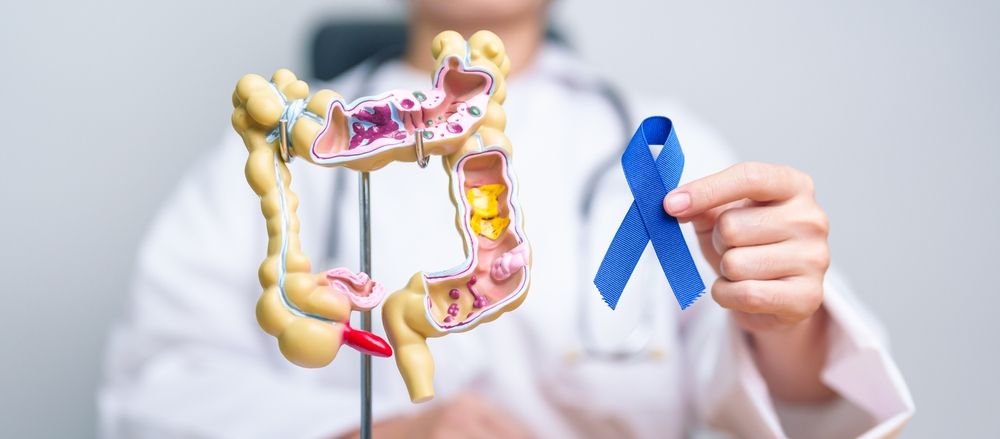Colorectal cancer is a serious condition that affects the colon or rectum and is one of the most common cancers worldwide. It can develop from polyps in the colon or rectum, which can become cancerous over time. Early detection and treatment are crucial for improving survival rates and quality of life. At Virginia Surgery Group in Reston, VA, Dr. Mohammed Bayasi and his team are dedicated to providing advanced colorectal cancer care tailored to each patient’s needs.
How to Identify Colorectal Cancer
Understanding the symptoms of colorectal cancer is essential for early detection and treatment. Here are the common signs and symptoms to watch for:
- Changes in Bowel Habits: Persistent diarrhea, constipation, or a change in stool consistency.
- Rectal Bleeding: Blood in the stool or dark, tarry stools.
- Abdominal Discomfort: Cramping, gas, or pain in the abdomen.
- Unexplained Weight Loss: Sudden weight loss without any known reason.
- Weakness and Fatigue: Persistent tiredness and a feeling of weakness.
- Feeling of Incomplete Bowel Movement: A sensation that the bowel doesn’t empty.
The Importance of Treatment
Colorectal cancer is a potentially life-threatening condition that requires timely medical intervention. Without treatment, the cancer can spread to other parts of the body, leading to complications and decreased survival rates. Early diagnosis and treatment improve the chances of successful outcomes and long-term survival.
Moreover, colorectal cancer can significantly impact a patient’s quality of life, causing discomfort, pain, and other debilitating symptoms. Seeking treatment from experienced professionals like Dr. Mohammed Bayasi at Virginia Surgery Group ensures access to the latest advancements in colorectal cancer care. This comprehensive approach focuses on removing cancer and emphasizes patient comfort and recovery.
Steps to Recovery
Colorectal cancer treatment involves a multi-faceted approach, combining various therapies to address the disease effectively. Here are the critical steps in the treatment process:
- Diagnosis and Evaluation:
- A thorough evaluation, including colonoscopy and imaging tests, is performed to confirm the diagnosis and assess the cancer’s stage.
- Biopsies may be taken to analyze the type and extent of cancerous cells.
- Surgical Intervention:
- Surgery is often the primary treatment for localized colorectal cancer, involving the removal of cancerous polyps, sections of the colon, or the entire colon.
- Minimally invasive techniques, such as laparoscopic surgery, may be used to reduce recovery time and improve outcomes.
- Chemotherapy:
- Chemotherapy is used to target and destroy cancer cells, often administered after surgery to eliminate any remaining cancer cells.
- Treatment plans are customized to each patient’s specific needs and health status.
- Radiation Therapy:
- Radiation may be used in conjunction with surgery or chemotherapy to shrink tumors and prevent cancer spread.
- Advanced techniques allow precise targeting of cancer cells while sparing healthy tissue.
- Targeted Therapy:
- This treatment involves drugs that target specific proteins or genes in cancer cells, reducing their growth and spread.
- Targeted therapy is often used for advanced stages of colorectal cancer.
- Post-Treatment Care:
- Patients receive ongoing support and monitoring to manage side effects and prevent recurrence.
- Regular follow-up appointments and screenings are essential for detecting any new or returning cancer early.
Reducing Your Risk of Colorectal Cancer
Preventing colorectal cancer involves adopting healthy lifestyle habits and staying vigilant about screening and early detection. A diet rich in fruits, vegetables, whole grains, and lean proteins can help reduce the risk of developing polyps that can lead to cancer. Limiting red meat and processed foods, avoiding tobacco, and moderating alcohol consumption are also important preventive measures.
Regular screenings, such as colonoscopies, are vital for detecting polyps before they become cancerous. Individuals with a family history of colorectal cancer or other risk factors should consult with healthcare professionals like Dr. Mohammed Bayasi to determine the appropriate screening schedule. Staying physically active and maintaining a healthy weight are additional ways to lower the risk of colorectal cancer.
Frequently Asked Questions
- What are the risk factors for colorectal cancer?
Risk factors include age, family history, inflammatory bowel disease, poor diet, smoking, and lack of physical activity. Regular screenings can help detect early signs, especially for high-risk patients. - How often should I get screened for colorectal cancer?
Screening recommendations vary, but most guidelines suggest starting at age 45 for average-risk individuals. Those with risk factors may need earlier and more frequent screenings. - Is colorectal cancer curable?
Colorectal cancer is often curable, especially when detected early. Treatment success depends on the stage at diagnosis and the patient’s overall health. - What lifestyle changes can help prevent colorectal cancer?
A healthy diet, regular exercise, avoiding tobacco, and limiting alcohol intake can reduce the risk of colorectal cancer. Regular screenings are also crucial for prevention. - What should I expect during recovery from colorectal cancer surgery?
Recovery involves wound care, a gradual return to normal activities, and regular follow-up appointments. With proper care and support, most patients recover well.
Take Charge of Your Health
Colorectal cancer is a serious condition, but early detection and expert care can make all the difference. Dr. Mohammed Bayasi and the team at Virginia Surgery Group in Reston, VA, are dedicated to providing comprehensive treatment options tailored to your unique needs. Our patient-centered approach ensures that you receive the highest standard of care throughout your journey to recovery. If you or a loved one is experiencing symptoms or requires screening for colorectal cancer, don’t hesitate to contact Virginia Surgery Group. Schedule a consultation with Dr. Mohammed Bayasi today to discuss your concerns and take the first step toward a healthier future. Our team supports you every step of the way, ensuring a smooth and successful recovery.


